Posted on 5/30/2024
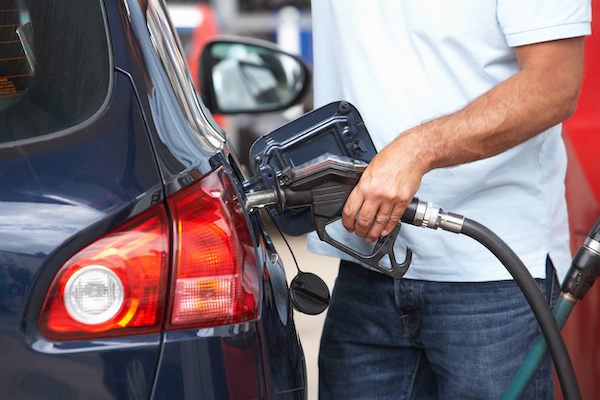
Gas mileage is impacting both your wallet and the environment. But what happens when you notice that your car is guzzling more fuel than usual? Understanding the reasons behind poor gas mileage can help you take the necessary steps to improve it. We'll explore the common causes of decreased fuel efficiency and provide tips on how to get your car back to optimal performance. Engine Performance Issues One of the primary culprits behind poor gas mileage is engine performance issues. When your engine is not running efficiently, it requires more fuel to operate. Problems like dirty fuel injectors, worn-out spark plugs, or a malfunctioning oxygen sensor can significantly reduce your car's fuel efficiency. Regular maintenance and tune-ups are necessary to keep your engine in top shape. Incorrect Tire Pressure Believe it or not, your tires are crucial to fuel efficiency. Underinflated tires create more rolling resistance, making your engine work harder and burn more fuel. Conversel ... read more
Posted on 4/29/2024
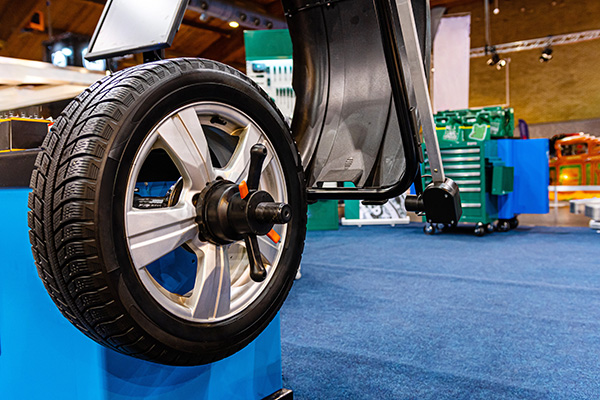
In the bustling world of automotive maintenance, ire balancing certain procedures tend to fly under the radar despite their important role in ensuring a smooth and safe driving experience. One such procedure is tire balancing – an often-overlooked aspect of vehicle maintenance that significantly preserves tire health and enhances overall driving performance. What is Tire Balancing Tire balancing is a meticulous process that ensures uniform weight distribution across all four tires of a vehicle. This involves identifying any imbalances in weight distribution, typically caused by variations in tire weight or imperfections in tire construction. To address these imbalances, specialized equipment measures the weight distribution and applies counterweights strategically to achieve equilibrium. Balancing each tire minimizes vibrations and uneven wear, resulting in a ... read more
Posted on 3/29/2024
.jpeg)
We must always pay attention to any signs of trouble in our vehicles. One common issue that can cause concern is fluid leaking. Not only can leaks indicate a problem with your car, but they can be a tremendous safety hazard. Water is usually not a concern, often originating from air conditioning condensation. Here are five possible reasons why your car leaks fluid and what you should do about it: Engine Oil Leak Engine oil is essential for lubricating various components of your car's engine to ensure smooth operation. It could indicate an engine oil leak if yu notice dark brown or black fluid pooling under the front of your vehicle. Engine oil will be greasy at the touch and will have a gasoline smell. Possible reasons: Damaged or worn-out gasket. A damaged oil filter. Damaged or worn-out sensor housing. Loose or damaged oil drain plugs. Igno ... read more
Posted on 2/27/2024
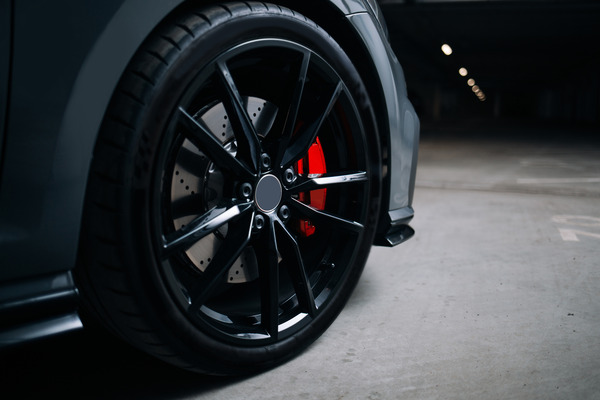
Ever cruised the car scene and admired those sleek rides with colossal rims? Or maybe you've considered upgrading your own wheels for a sportier or more rugged look. But before you dive in, it's important to understand if wheel rim size and type actually matter. The answer, like many things in the car world, isn't a simple yes or no. It depends on your priorities and what you want to get out of your car. Let's break it down: Understanding the Lingo Wheel Rim Size This refers to the diameter of the metal part of the wheel, measured in inches. Wheel Type This describes the material and construction of the rim, with common options including steel, alloy, and forged alloy. Offset This specifies how far the wheel sits from the hub, impacting handling and clearance. The Impact of Size It looks impressive, potentially improves handling (with wider tires), and offers better brake performance (with larger ro ... read more
Posted on 1/27/2024
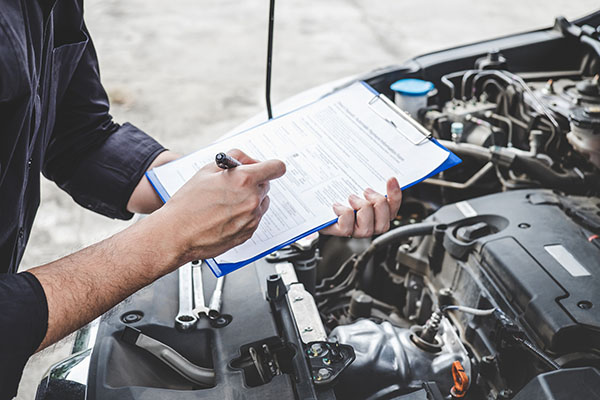
As the new year unfolds, many of us make resolutions to improve our lives. However, amidst these fresh starts, old problems can linger, particularly with our cars. Vehicle issues don't abide by calendars, and the start of a new year is an excellent time to focus on automotive health to prevent common issues and breakdowns. Understanding Common Car Problems The Battery A car battery typically lasts 3-5 years, but harsh weather and irregular use can shorten its lifespan. To avoid being stranded with a dead battery, consider having it tested as part of your regular maintenance routine, especially before winter. Keep the battery terminals clean and check for any signs of wear or corrosion. If your car starts slower than usual, it might be time for a new battery. Rubber Meets the Road Tires are critical for safety, comfort, and fuel efficiency. Regularly check t ... read more
Posted on 12/3/2023
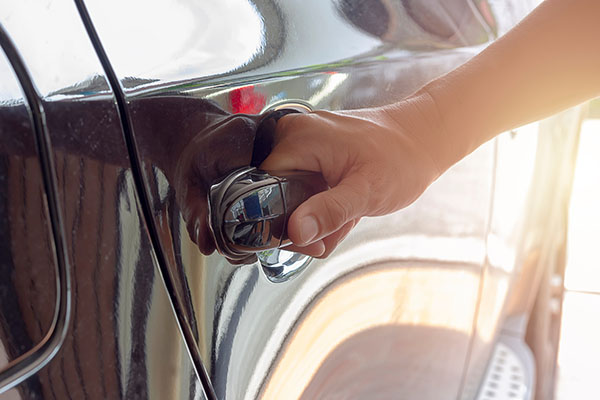
As winter settles in and temperatures drop, it's not just your fingers that feel the chill – your car can also become a victim of the icy season. One of the most frustrating scenarios for any driver is encountering frozen car locks and doors. But fear not – we'll share practical solutions to thaw these cold problems and ensure you're back in your car with warmth and ease. Prevention is the Best Cure Before we dive into remedies, let's talk about prevention. To avoid the hassle of frozen locks and doors, consider these proactive steps: Lock De-Icer: Keep a can of lock de-icer in your car or at home. It's a quick and effective solution for preventing lock freezing. Silicone Spray: Apply silicone spray to your door seals. This helps create a barrier against moisture, preventing doors from freezing shut ... read more
Posted on 11/28/2023
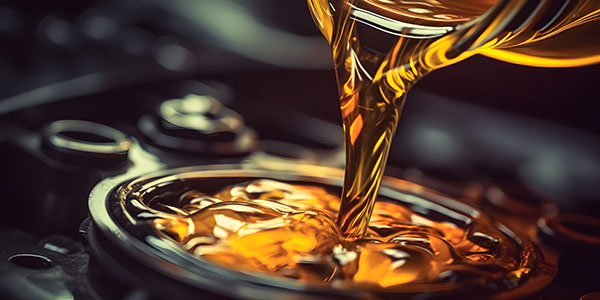
Choosing the right engine oil for your car is crucial for its performance and longevity. Whether you're a car enthusiast or a novice, this article aims to empower you with the knowledge needed to keep your engine running smoothly. Why Engine Oil Matters Your car's engine consists of numerous moving parts that create friction and heat. Engine oil acts as a lubricant, preventing wear and tear while also dissipating heat, ultimately enhancing overall performance and extending the engine's lifespan. Common Engine Oil TypesConventional Oil Conventional oil is derived from crude oil and is the traditional go-to for many vehicles. It's cost-effective but may not offer the same performance benefits as synthetic options. Synthetic Oil Synthetic oils are chemically engineered for optimal lubrication, providin ... read more
Posted on 10/30/2023
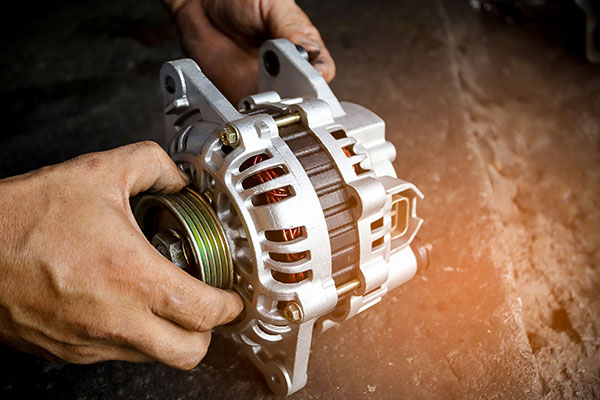
In the intricate symphony of your vehicle's components, the alternator plays a vital role, much like the conductor of an orchestra. It's the unsung hero that keeps the electrical system humming, powering everything from your headlights to your smartphone charger. But what happens when this crucial component goes off-key? Join us as we uncover the seven unmistakable signs that your alternator might be on the fritz. What is an Alternator? Let's quickly go over what an alternator actually is. Imagine it as a miniature power plant under your car's hood. While the engine is running, the alternator generates electrical energy and charges the battery, ensuring a constant supply of power to all electrical systems. In essence, it keeps the lights on, the radio playing, and your engine running smoothly. 1. Dimming Lights Ever notice your headlights dimming when you rev up the engine or use power-hungry accessories? This could be the first sig ... read more
Posted on 9/29/2023

Are you ready to embark on a thrilling road trip adventure? Raleigh, North Carolina, serves as the perfect starting point for exploring the beauty of the Tar Heel State and its neighboring gems. Buckle up and get ready to discover seven road trip-worthy destinations near Raleigh, NC, that promise to leave you in awe. 1. The Historic Charm of Charleston, SC - 220 Miles Drive Just a few hours' drive from Raleigh, Charleston welcomes you with its cobblestone streets, antebellum architecture, and waterfront charm. Stroll along the historic district, savor delicious Lowcountry cuisine, and take in the serene beauty of the coast. 2. The Smoky Mountains: Gatlinburg, TN - 250 Miles Drive Escape to the Great Smoky Mountains and experience the natural wonders of Gatlinburg. Hike scenic trails, visit the iconic Ober Gatlinburg, and enjoy the vibrant arts and crafts community nestled in this picturesque mountain town. 3. The Scenic Beauty of Ashev ... read more
Posted on 8/31/2023
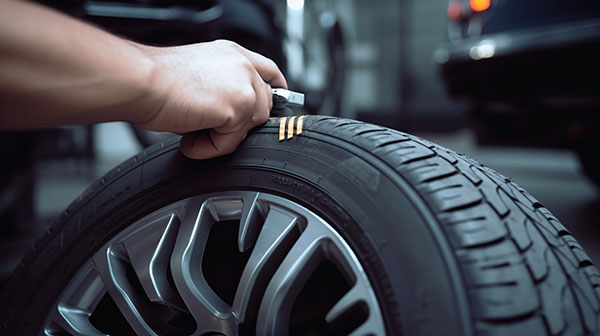
When it comes to vehicle maintenance, a few aspects are as crucial as ensuring your tires are in optimal condition. The tread depth of your tires plays a pivotal role in both stability and safety while driving. This article highlights the significance of maintaining appropriate tire treads for optimal performance and safety on the road. So if that sounds interesting, strap on and continue reading! The Importance of Tread Depth Tire tread depth refers to the measurement of the space between the top of the tread rubber to the bottom of the tire's deepest grooves. This design feature is not just for aesthetics; it serves a critical purpose in maintaining grip and control on the road. Tread patterns are engineered to disperse water, snow, and debris, allowing the tire to maintain contact with the road surface. As the treads wear down over time, the tire's ability to channel away these elements diminishes, leading to potential hazards. Traction and Stabil ... read more